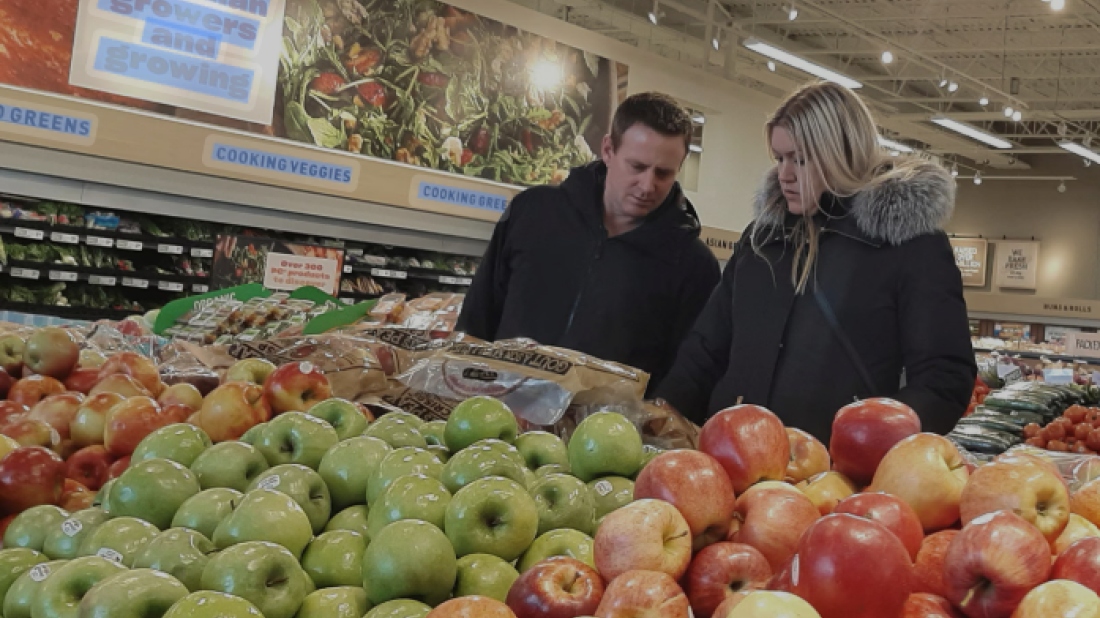Russia says 23,000 militants from 20 terror groups operating in Afghanistan
More than 23,000 militants from about 20 international groups are currently operating in Afghanistan, posing a threat to regional and global security,...

Canada’s annual inflation eased to 1.7% in July, helped by falling gasoline prices, raising hopes of a potential Bank of Canada rate cut in September.
Statistics Canada reported that July’s consumer price index (CPI) rose 0.3% month-on-month, slightly above June’s 0.1%, while the annual inflation rate slowed from 1.9% to 1.7%.
Gasoline prices dropped 16.1% year-on-year, aided by higher oil output and the removal of the carbon levy, easing pressure on the CPI.
Core inflation, excluding volatile items like gasoline, increased 2.5% in July, with the three-month average of core measures falling to 2.4%, the lowest since September last year.
Economists view this as a signal that the Bank of Canada may consider a rate cut if the trend continues.
Rising costs in food and shelter partially offset gains from falling fuel prices. Food prices rose 3.3% year-on-year, while shelter costs, the largest CPI component, increased 3% in July.
Following the inflation report, the Canadian dollar dipped 0.23%, and two-year government bond yields fell to 2.704%. Money markets now price a 40% chance of a rate cut at the 17 September Bank of Canada meeting.
Italy said a fond farewell to the Winter Olympics on Sunday with an open-air ceremony in the ancient Verona Arena that celebrated art and sporting achievement at a Games lauded as a model for how to stage such events.
The United States and Iran will hold a new round of nuclear negotiations in Geneva on Thursday as part of renewed diplomatic efforts to reach a potential agreement, Oman’s Foreign Minister Badr Albusaidi announced on Sunday.
Further Iran-U.S. nuclear talks are scheduled in Geneva on Thursday (26 February) as diplomacy resumes over Tehran’s nuclear programme following earlier mediation efforts. But will the talks move Iran-U.S. negotiations closer to a deal, and what should be expected from the meeting?
Mexican authorities said on Sunday that Nemesio Oseguera Cervantes, known as El Mencho and head of the Jalisco New Generation Cartel (CJNG), was killed during a military operation in the western state of Jalisco.
The European Parliament’s trade chief has urged a temporary suspension of the EU–U.S. trade agreement approval, citing “tariff chaos” following President Donald Trump’s new 15% tariffs and a U.S. Supreme Court ruling invalidating his previous global tariff programme.
Millions of Colombian roses have arrived in the United States just in time for Valentine’s Day, keeping the country on track as the world’s second-largest flower exporter. Between 15 January and 9 February, Colombia shipped roughly 65,000 tons of fresh-cut blooms.
Russia’s car market is continuing to receive tens of thousands of foreign-brand vehicles via China despite sanctions imposed after Moscow’s full-scale invasion of Ukraine in 2022, a journalistic investigation has found.
Türkiye’s national energy company, TPAO, has struck a new cooperation deal with U.S. energy giant Chevron, signing a memorandum of understanding to explore joint oil and gas exploration and production opportunities, the Turkish Energy and Natural Resources Ministry announced on Thursday.
Wall Street ended sharply lower on Tuesday as investors worried about artificial intelligence (AI) creating more competition for software makers, keeping them on edge ahead of quarterly reports from Alphabet and Amazon later this week.
U.S. stock markets finished mixed on Wednesday (28 January) as investors reacted calmly after the Federal Reserve left interest rates unchanged, a decision that had been widely expected and largely priced in.
You can download the AnewZ application from Play Store and the App Store.

What is your opinion on this topic?
Leave the first comment